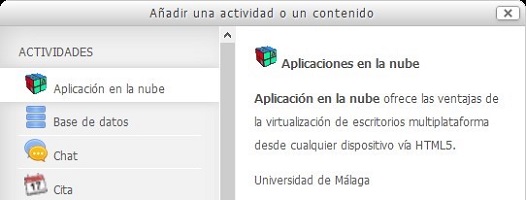This experience delivers an important added value both for teachers and students. They can access very easily to the applications they need from the subjects located in the Virtual Campus since the applications are running on remote virtual machines.
It also improves usability and user experience, as technical skills are not needed to manage it, nor complex setup processes or specific requirements in the students’ and teachers’ devices.
The deployment of this project is in the line with BYOD (Bring Your Own Device) trend, since students increasingly use their own devices to access the resources they need anytime and anywhere.
This initiative provides other interesting advantages to teachers. For example, they don’t need to contact the technical staff to notify which students can access what virtual machines; thanks to the use of the list of participants (students and teachers) in the Virtual Campus subjects to control who has access to the virtual machines.
Moreover, teachers can check very fast and easily which applications are available to them when they configure their subject in Moodle.
The University of Malaga emphasizes the role of UDS Enterprise in this project. They explain they chose “this connection broker to integrate it with Moodle since it enables third-party integration and it can be used as service provider for external platforms, such as Moodle”. UDS Enterprise also offers a lot of possibilities to educational organizations, because it enables the deployment and management of virtual and physical desktops, applications and other Windows & Linux services.








0 Comments